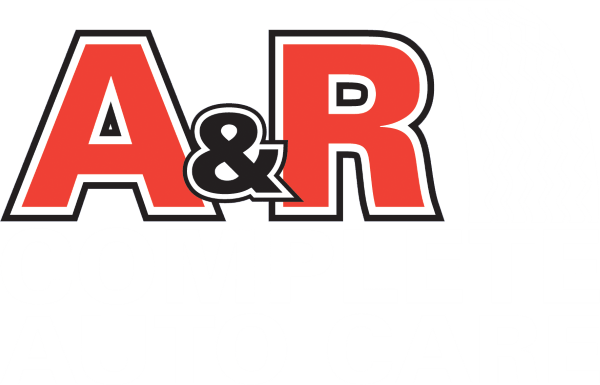8 Top Reasons Your Vehicle Won’t Accelerate
It can be frustrating to get no acceleration from your engine after you stomp on the gas, especially when trying to pass a big rig on the highway. After all, your vehicle is supposed to go faster when you need it to. What should you do if your car won’t accelerate? I’d recommend scheduling an auto repair diagnosis with your local mechanic. There are many reasons why your vehicle won’t accelerate, and they can vary depending on the type and age of your car. A qualified technician can diagnose the problem and tell you if it is an issue with your timing belt, bad sensors, or faulty parts.
REASONS YOUR VEHICLE WON’T ACCELERATE
BAD SENSORS
Car manufacturers design modern vehicles with a ton of sensors that operate the various components within your engine. Most of the time, when one (or more) of these sensors go bad, it will trigger a dash warning light. Your mechanic can identify the diagnostic code once that happens. However, if the bad sensor doesn’t activate a dash light, then it can become a little tricky to locate which sensor has the issue. Here are the most common sensors that may be why your car won’t accelerate.
- MASS AIR FLOW SENSOR (MAF)
The Mass Air Flow Sensor measures the airflow going into the air intake and communicates that information to the onboard computer. A clogged or malfunctioning sensor could change the air/fuel mixture calculations, causing sluggish acceleration. - OXYGEN SENSOR (O2)
Oxygen Sensors are in the exhaust system and monitor the emissions. A bad O2 sensor usually triggers a dash warning light. In addition, you may experience black exhaust, substandard fuel economy, and poor acceleration. - THROTTLE POSITION SENSOR (TPS)
A Throttle Position Sensor tracks the throttle through the input from the driver via the gas pedal. It communicates that information to the computer, regulating the amount of fuel allowed into the engine. If the TPS is malfunctioning, then it may not respond to your input for more speed.
CLOGGED OR DIRTY FILTERS
Combustion engine vehicles rely on the perfect mix of air and fuel to operate efficiently. Therefore, dirty or clogged filters can compromise the air-to-fuel ratio, resulting in acceleration issues. Fortunately, filters strain out impurities and debris from flowing through your engine. Unfortunately, over time as they can become dirty and/or clogged, you will need to replace them.
- ENGINE AIR FILTER
A dirty engine air filter is a simple thing to check. Your owner’s manual will tell you where it is and how to inspect it. When dirt and debris clog your air filter, then there is less air flowing into your engine. Insufficient air flow impedes combustion, which can translate into slower acceleration. Auto manufacturers recommend changing your engine air filters twice a year. - FUEL FILTER
The fuel filter can also become clogged with debris and sludge. Therefore, the clogged filter compromises the proper combustion of air/fuel mix because the fuel can no longer flow freely. When you find a clogged fuel filter, you cannot clean it; replacing it is the only way to fix the issue. - FUEL INJECTOR
Let’s not forget about the fuel injectors. They are also prone to clogs from debris in the fuel. If you suspect clogged fuel injectors, try adding a fuel injector cleaning solution to your gas tank.
FAULTY PARTS
Mechanical issues are also a possibility as to why your car won’t accelerate. Moving parts wear down with use, so you should practice routine maintenance. A multi-point inspection once a year can help address any issues before they become major problems.
- TIMING BELT
The timing belt assists the cylinders so they all fire at the correct time. If the timing belt has worn out or is misaligned, you can experience misfires, rough idling, and slow acceleration. It would be best if you got this issue fixed immediately. A broken timing belt can cause extensive damage to your engine and transmission. - COIL-ON-PLUG (COP) SYSTEM OR SPARK PLUGS
Model vehicles (1990s and newer) often have a computer-controlled spark delivery and timing system instead of a distributor. The ignition coils, also known as Coil-On-Plug packs, are connected to the top of each spark plug. These packs convert the power from the battery and generate their own spark. If the spark plug wears out, it generates a weaker spark, translating into less power to your engine. Older model vehicles (1990s and older) operate with a distributor, ignition coil, plug wires, and spark plugs. You should inspect all those components for wear and corrosion.
AUTO REPAIR DIAGNOSIS IN CLARKSVILLE, TN
A&R Complete Auto Care has been your local Clarksville area auto repair expert since 2009. We specialize in comprehensive vehicle inspections. Our ASE-Certified technicians use the most current diagnostic equipment available to provide an auto repair diagnosis for your car or truck.
VEHICLE WON’T ACCELERATE ISSUES? SCHEDULE YOUR SERVICE
Call us at
(931) 552-0606 or contact us online to schedule your diagnostic service appointment today!
HOME OF THE TOP-RATED REPAIR SHOP
Our customer-focused team welcomes each of our customers home with each visit. We are always ready to give honest and practical recommendations for all of your service, repairs and scheduled maintenance needs. Whether you drive a new car or a trusted older model, our friendly and polite team is eager to welcome you home.



